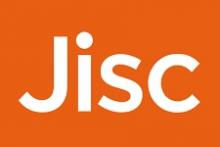Is a software revolution on the cards?

The open-access movement is calling into question business models in scholarly publishing, writes Sami Benchekroun
The growing open access movement is not only changing the way that research is accessed, but also sparking a broader discussion around the future of scholarly communications as a whole.
Existing business models are being called into question as publishers and service providers move away from monetizing via access to content and explore new revenue streams that provide value to researchers and institutions alike.
In parallel to the open-access dynamics, one can observe a greater awareness of the need to provide a more varied, in-depth, and upstream picture of research output in scholarly publishing, including the vast amount of research findings and data that are not yet structured in a usable way. Encouraging authors to upload supporting data when submitting a paper is just one example.
Another example is the increased importance of sharing pre-published research, such as preprints or conference posters, to help scientists stay on top of the latest developments in their field and receive feedback earlier in the research process. This is an exciting trend, as transferring previously hidden data from the lab, PC, or even a conference poster into interconnected digital tools and services provides a host of new scientific insights.
For all the benefits that this content offers, it also poses a significant challenge for scholars: sorting through swaths of information to discover the research that’s most relevant to their work is a tedious and time-consuming process.
New research outputs also create new software challenges as a wide variety of formats must be integrated into existing information and knowledge systems. In fact, one of the main reasons researchers are not sharing data at scale are because they don’t know where to share it and lack incentives from the community to do so.
Existing tools, such as institutional repositories, content workflow or discovery services, do not put user experience or innovative discovery and dissemination concepts at the forefront, nor do they target specific formats such as pre-published research. As such, software services that can make content easily discoverable and useful for researchers are becoming all the more relevant and have a massive business opportunity in the scholarly ecosystem.
Take a moment to consider the world of B2B software products.
A little over a decade ago, the majority of services were clunky and could not be easily integrated into existing systems, nor did they provide a pleasant user experience.
As a result, they did not fully focus on the unique needs of their individual customers. Fast forward to today and the landscape is very different, with several initiatives emerging to shape and improve the usability of Software as a Service (SaaS) products, backed by the help of venture capital money.
Today, even niche industries use tools that have been custom-built for their vertical, from specific customer relationship management tools to logistical services. Having access to new kinds of highly relevant and useful software services helps businesses achieve success and accelerate their growth by providing a tailor-made solution to their needs.
There’s evidence that a similar shift is underway in scholarly publishing. The research workflow and the way that content is shared, discovered, and analysed is being reinvented to invigorate processes that are often decades-old.
Even Elsevier, the largest scholarly publisher by revenue, in fact does not brand itself as such, but rather as an information analytics company, to name just one example of this shift. As we move forward, it’s likely that more companies and services will emerge which have a laser focus on solving a specific problem faced by research professionals, such as the issue of finding the right content.
We’re already seeing a host of services that are tackling an element of the research process, from tools to easily record lab findings, platforms to boost the reach of both journal articles and other research documents, and services to make peer review more efficient. These software services may be built on the back of technologies such as AI or machine learning, allowing them to learn and improve as they’re put to use.
Whether software tools are developed by external companies, or by publishers in-house, the signs are pointing towards an increasingly services-driven revenue stream in 21st century scholarly publishing.
It’s a move that we can all embrace: Supporting researchers to do their best work while ensuring research is more accessible is a win for science and a win for sustainable business models.
Sami Benchekroun is managing director of Morressier










